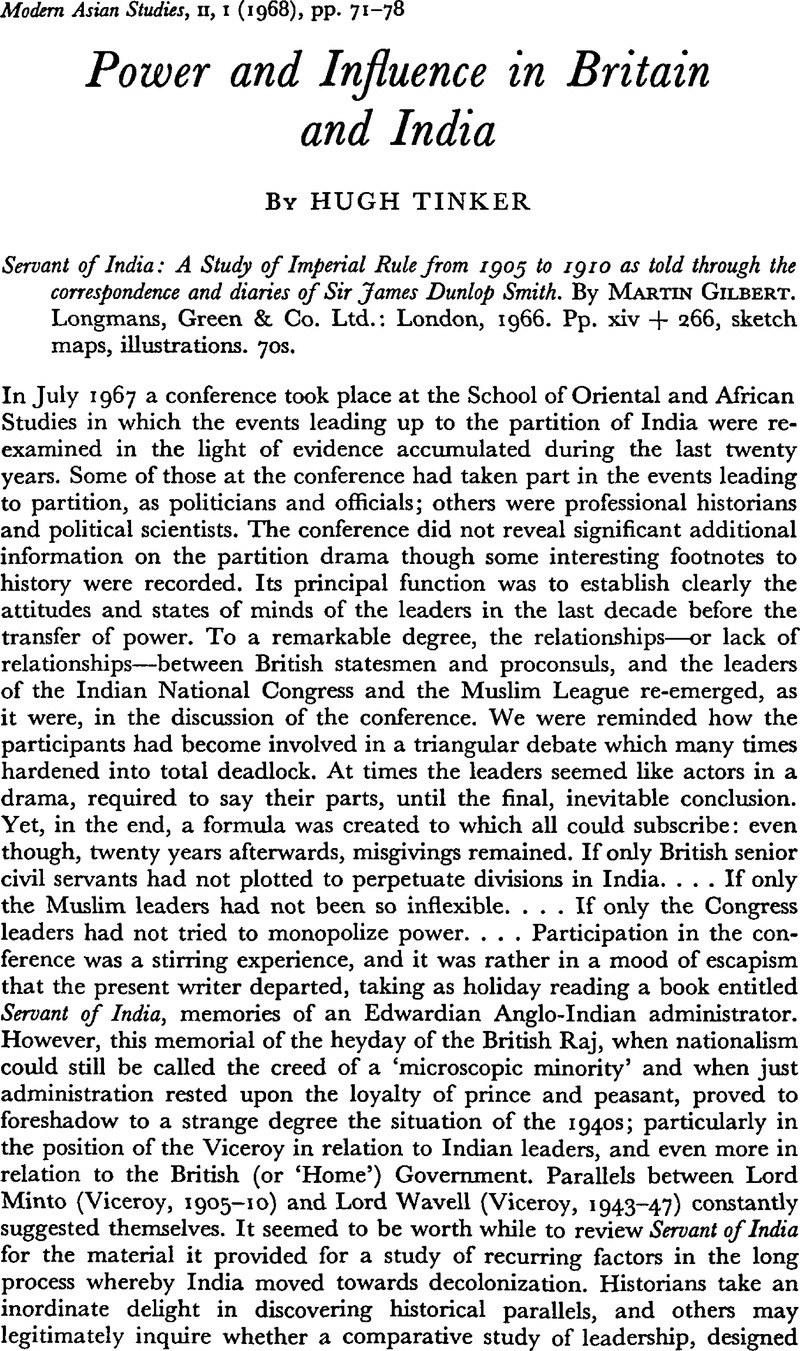No CrossRef data available.
Article contents
Power and Influence in Britain and India
Published online by Cambridge University Press: 28 November 2008
Abstract

- Type
- Review Article
- Information
- Copyright
- Copyright © Cambridge University Press 1968
References
1In a despatch to the Secretary of State, dated 2 February 1905, Curzon wrote; ‘Calcutta is the centre from which the Congress party is manipulated throughout the whole of Bengal and indeed the whole of India.’Google Scholar
2Servant of India, p. 157.Google Scholar
3Ibid., p. 257.
4Ibid., p. 222.
5Dalhousie had been the youngest Governor-General, at 36.Google Scholar
6Servant of India, pp. 223, 234.Google Scholar
7Ibid., pp. 161, 232.
8Some ICS men realized that unless Indian politicians with a popular following were brought into the government, political initiative would pass into the hands of intransigent elements. In 1907, Dunlop Smith received a letter from Harcourt Butler, later Governor of the United Provinces and of Burma. Butler wrote ‘Moderation does not last under the Indian sun. If the Government does not draw them to itself the Moderates will turn to the Extremists… Why not create an educational portfolio?… And why not make Gokhale the first member?’ But when a department of education was set up, it was Harcourt Butler who became the first member (or minister).Google Scholar
9Servant of India, p. 232;Google Scholar and Tinker, Hugh, Experiment with Freedom, India and Pakistan, 1947, London, 1967, p. 159.Google Scholar


